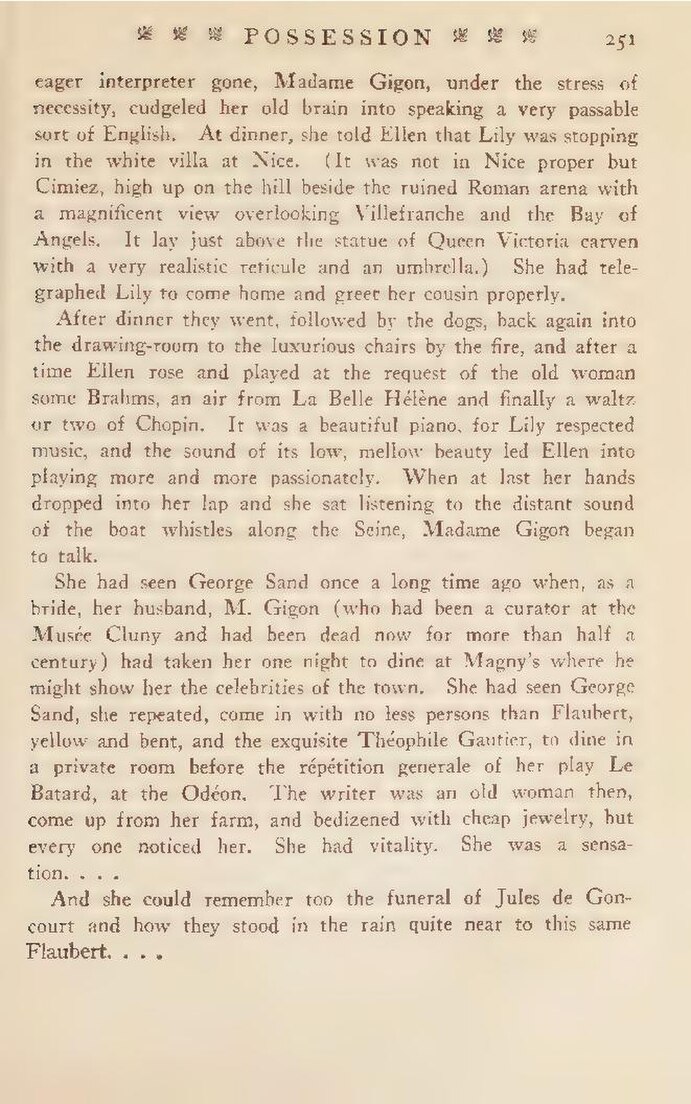eager interpreter gone, Madame Gigon, under the stress of necessity, cudgeled her old brain into speaking a very passable sort of English. At dinner, she told Ellen that Lily was stopping in the white villa at Nice. (It was not in Nice proper but Cimiez, high up on the hill beside the ruined Roman arena with a magnificent view overlooking Villefranche and the Bay of Angels. It lay just above the statue of Queen Victoria carven with a very realistic reticule and an umbrella.) She had telegraphed Lily to come home and greet her cousin properly.
After dinner they went, followed by the dogs, back again into the drawing-room to the luxurious chairs by the fire, and after a time Ellen rose and played at the request of the old woman some Brahms, an air from La Belle Hélène and finally a waltz or two of Chopin. It was a beautiful piano, for Lily respected music, and the sound of its low, mellow beauty led Ellen into playing more and more passionately. When at last her hands dropped into her lap and she sat listening to the distant sound of the boat whistles along the Seine, Madame Gigon began to talk.
She had seen George Sand once a long time ago when, as a bride, her husband, M. Gigon (who had been a curator at the Musée Cluny and had been dead now for more than half a century) had taken her one night to dine at Magny's where he might show her the celebrities of the town. She had seen George Sand, she repeated, come in with no less persons than Flaubert, yellow and bent, and the exquisite Théophile Gautier, to dine in a private room before the répétition generale of her play Le Batard, at the Odéon. The writer was an old woman then, come up from her farm, and bedizened with cheap jewelry, but every one noticed her. She had vitality. She was a sensation. . . .
And she could remember too the funeral of Jules de Goncourt and how they stood in the rain quite near to this same Flaubert. . . .
